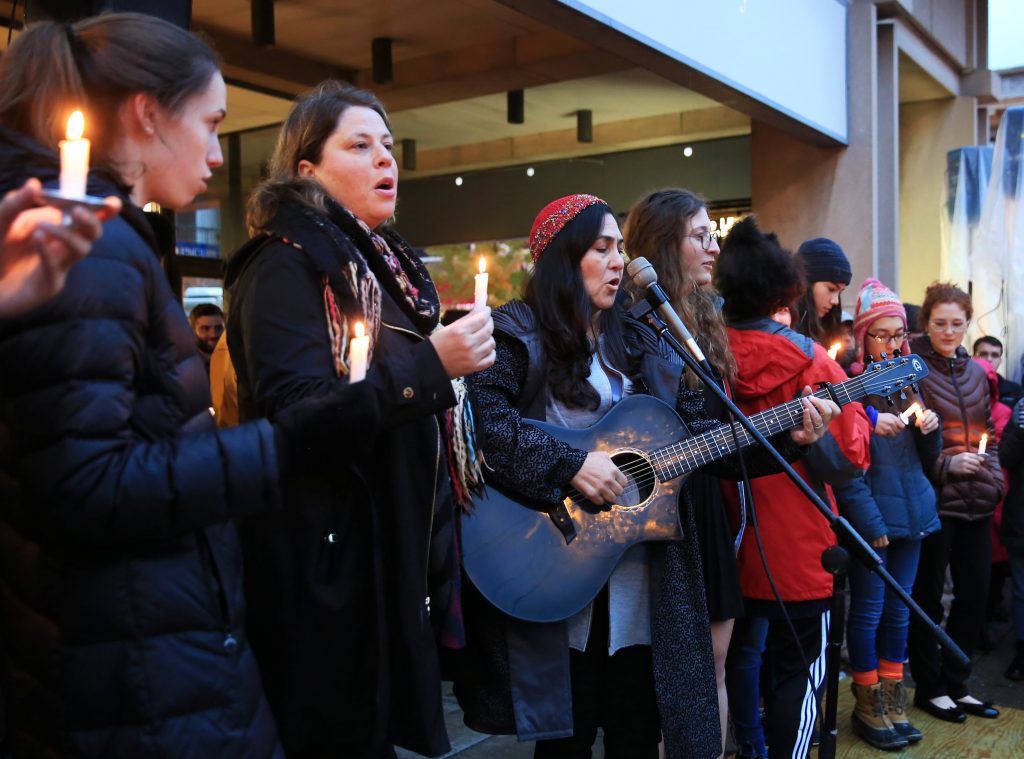“We learn who we are by doing what we do.” (Mark Searle, “Active Participation,” editorial, Assembly 6, no. 2, 1979, p. 65)
Through our participation in Sunday Mass, we practice our humanity; we practice who we are to be in the world, based on God’s guidance in and through the life of Jesus Christ. Our ritual prayer continually forms us in a pattern of living made visible through the actions Christ commanded us to do in his memory. The Mass is the embodiment or the visible expression of our commitment to be people who live the way of Christ in the world; a humanity imbued with the spirit of God.
The liturgy is more actions than words. We participate in gathering as one body; in bowing in humility before the God of all creation; in reverencing the altar, the book, the space as the material through which we come to encounter God; by listening in quiet contemplation; by remembering our sacred stories; by expressing oneness and solidarity through procession, common posture and gesture; by sharing in the actions of the blessed meal — setting the table, bringing God’s gift of nourishment to the table, blessing the gifts, remembering Christ’s actions; by participating in song and sharing in sacred silence. The priest-presider isn’t the only one acting and doing these things. We all do it together.
“Liturgy … teaches us to use our bodies to house the presence of God, to worship him and to serve him, and to bring his Word and healing to others. It teaches us to listen to the voice of God in the voice of others, and to receive at the hands of others the gifts of God himself. It teaches us to live in the society of others, people of different background and different race, as men and women committed to peace and unity and mutual help. It teaches us to use the goods of the earth — represented in the liturgy as bread and wine and water and oil — not as goods to be grabbed, accumulated and consumed, but as sacraments of the Creator himself, to be accepted with thanksgiving, handled with reverence and shared with generosity” (Mark Searle, “Liturgy Made Simple”).
Gathering, processing, singing, bowing, reverencing, listening, remembering, expressing, sharing, setting, bringing, blessing, participating, speaking, receiving, accepting, contemplating, reflecting, interceding, worshipping, kneeling, sitting, proclaiming, acclaiming — it’s all prayer!
It’s our communal, corporate response to our ever-loving God who reaches out to us and calls us into communion by living the way of Christ. Do this! Be what Christ said and did.
The Mass really is more about heart-learning and life-living than it is about head-learning or cognitive thought. We learn by doing, and so through full, conscious, active and authentic participation, Eucharistic living takes deeper roots in our lives. The Eucharist is not outside of us. It is within us.
In the shadow of recent national news events displaying acts of hatred and violence against others, our community in Christ stands in solidarity with all those killed or wounded by these acts. We pray for the victims of such violence, and for their families. We stand together as one human family, all made in the image of God. As individuals, we live out that love of God in the world around us, and as church we stand as an even stronger presence of love. We are each a part of a bigger reality that reaches out to the world in the power of the Holy Spirit, transforming fear and hatred into the love of God. We are church! The church exists, not so much for the benefit of its individual constituents, but on behalf of the world, so that the world will not forget the message and mission of Jesus Christ, Son of God.
Jesus incarnate — God in humanity — gave us the pathway to become Eucharist for one another, to be Eucharist in the world. The liturgy is not solely other-worldly. It is how God, in Christ, chose to be a part of this world, in and through us, the people of God, the church. It is how we learn our common humanity in God: reverencing, listening, remembering, sharing, blessing, receiving, accepting, contemplating, reflecting, interceding, proclaiming.
In the current climate of public discourse in our country, may we become for others the oneness that is God in Christ. May we be Eucharist for a wounded and weary world. Through the power of the Holy Spirit, and through our participatory actions at the Mass, perhaps we can learn better what we can offer the world. Can we return to the table this coming Sunday with contrite and humble hearts, participating fully in the actions of Jesus and learning who we are, once again.
Start your day with Always Forward, our award-winning e-newsletter. Get this smart, handpicked selection of the day’s top news, analysis, and opinion, delivered to your inbox. Sign up absolutely free today!

